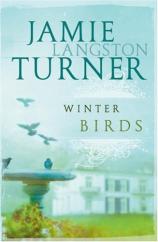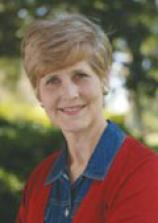Reading Group Guide
Discussion Questions
Winter Birds

1. What are Sophie's fears? What factors in her background contribute to these fears? How do her fears affect her interactions with other people?
2. Sophie was born in Mississippi and has lived in the South all her life. In what ways is she a typical Southerner? In what ways is she not? To what extent is a person's temperament and outlook on life bound by his geographical culture?
3. Sophie is immediately drawn to Potts, first by his voice and then by the man himself. Why does she respond so positively to a former convict of a different What role does Potts play in the development of the other characters?
4. Sophie's attitude toward men in general is not very high. Trace the development of her relationship with her nephew Patrick. Can you identify key turning points?
5. In literature we speak of developing, or dynamic, characters—those who change in some significant way—as opposed to static characters, who remain basically the same throughout the plot. Classify the following characters and give specific evidence to support each choice: Sophie, Patrick, Rachel, Teri, Mindy, Potts.
6. How would you describe Sophie's first feelings toward Rachel? Why does Sophie grow to love her? Rachel is a woman of few words, yet what she says has a profound effect on Sophie. Cite examples.
7. The power of love is a major theme of the book. What new insights about love does Sophie observe after moving to Patrick's house?
8. Sophie's discovery of her husband's secret has colored her life for the past twenty-five years. Is it believable that such a discovery could have such a devastating and lasting effect on a woman? What kind of 80-year-old woman might Sophie have become had she never found the pictures in Eliot's desk? Is there any chance that she could have been mistaken about Eliot? Is it possible that he might have been innocent?
9. Is Sophie's intellect as slight as Eliot once claimed? Cite proofs of her superior intelligence. Has her disappointing life, particularly in marriage, destroyed her sense of humor?
10. Samuel Johnson, eighteenth-century British author, once wrote that "amusement and instruction are always at hand to those who have skill and willingness to find them" and that "a single house will show whatever is done or suffered in the world." To what degree is Patrick's house on Edison Street evidence of the truth of Johnson's statement? Sophie's experiences here are limited and she rarely leaves the house, but is hers what you would call a "narrow existence"? How is it possible to live broadly and deeply without traveling?
11. Discuss Sophie's relationship with children throughout her life. Consider her feelings toward the following: Starr, Portia and Alonso, Veronica, Mindy, Prince. How might a child of her own have changed her life?
12. Sophie scoffs at the idea of animals acting out lessons in such human virtues as resourcefulness, diligence, and cheerfulness, yet she closely observes the birds at her window. Does she learn anything from watching them? If so, what? Comment on the significance of the title Winter Birds.
13. Sometimes the viewpoint character (the one through whose eyes we see the story) is the same as the focal character (the one who most clearly illustrates the theme of the story), but sometimes they are two different characters. In Winter Birds, Sophie is the viewpoint character. Is she also the focal character? If not, who is?
14. The author uses present tense to tell Sophie's story. (The opening sentence reads, "Rachel comes to take my dishes" instead of "Rachel came to take my dishes.") Do you find this technique distracting or effective?
15. Achieving a balance between portraying realism yet not wallowing in it is every Christian author's challenge. How do you respond to passages that touch on subjects not considered "nice" to talk about, such as embalming, an old woman's naked body, or dirty pictures? Do you think Christian fiction should avoid such topics altogether?








